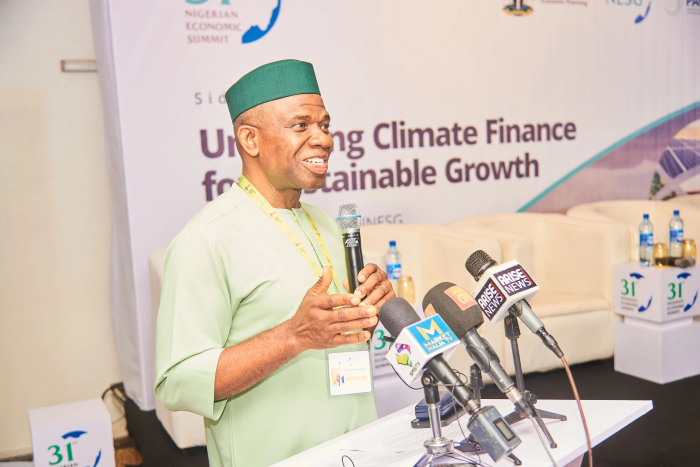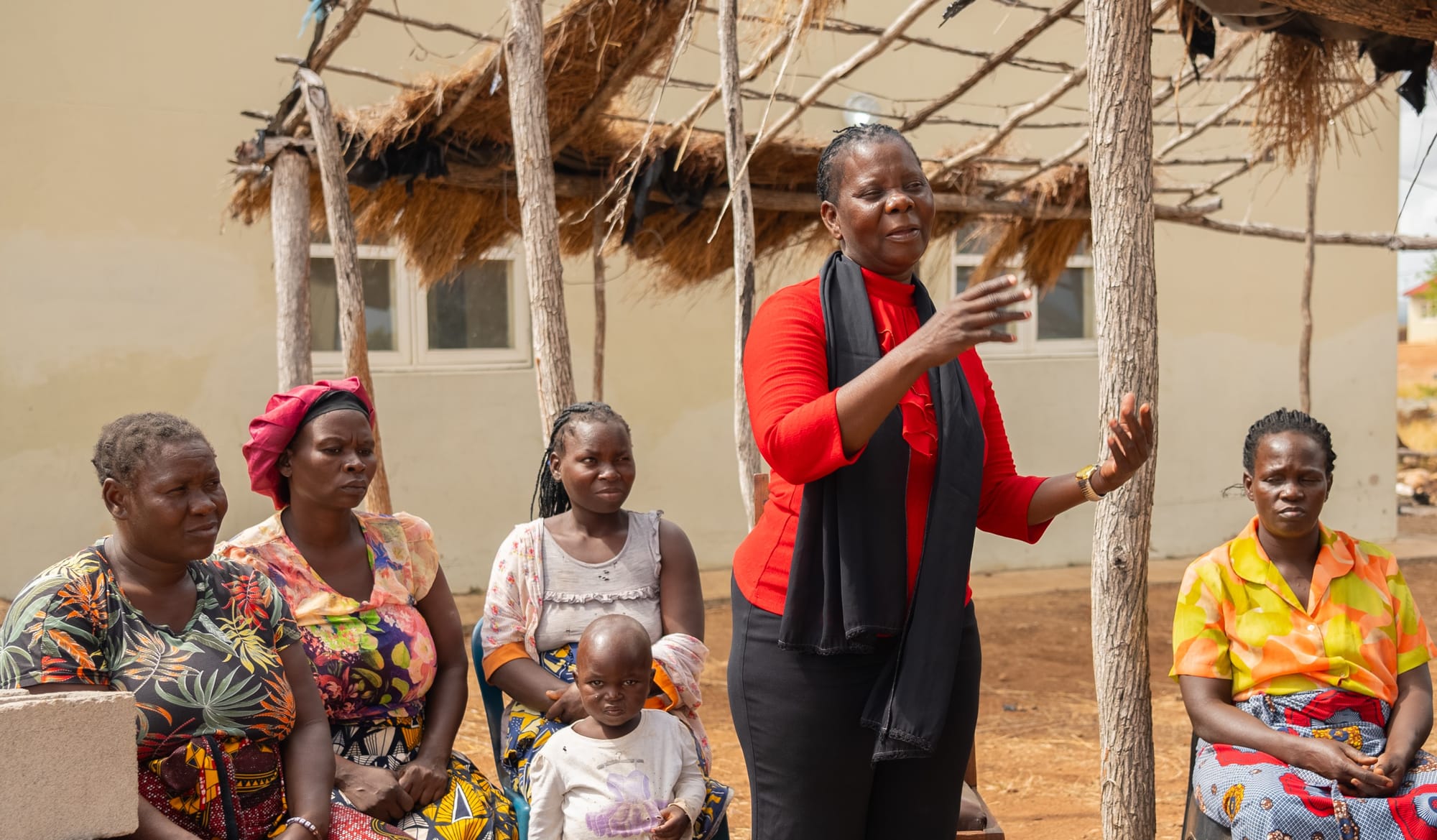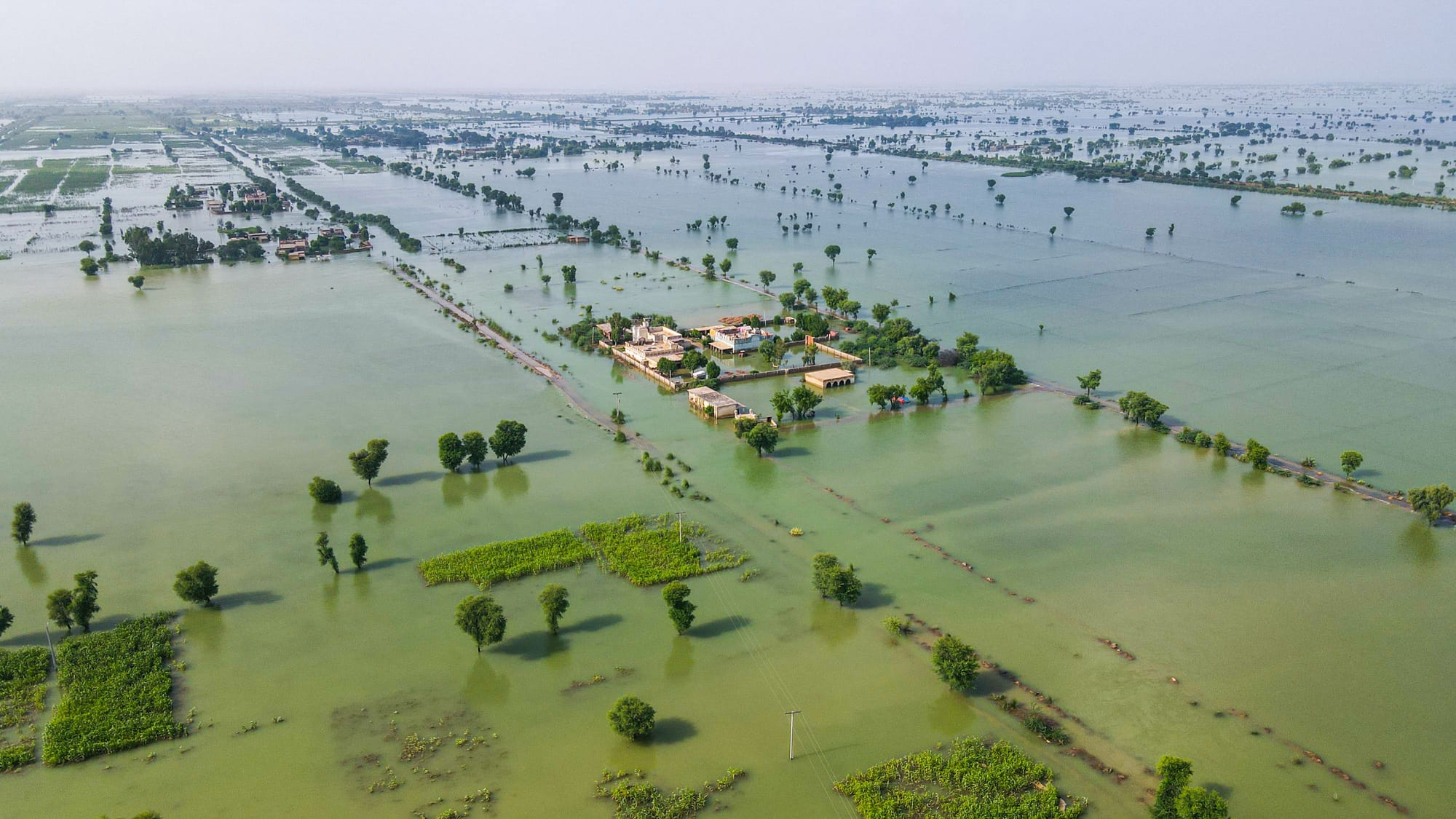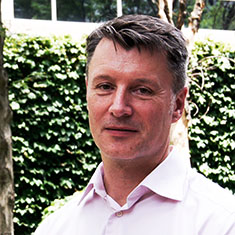Nigeria—Africa’s largest economy and most populous country—faces complex governance and climate challenges, the latter including drought, desertification, and flooding. In 2022, for example, 1.3 million people were displaced by one of the worst floods in Nigeria’s history, which disrupted livelihoods and exacerbated poverty and economic instability. In the north, desertification is steadily encroaching on arable land, while rising sea levels threaten Lagos and other coastal communities.
Against this backdrop, the U.K. Foreign, Commonwealth & Development Office (FCDO) launched the Partnership for Agile Governance & Climate Engagement (PACE), a unique project that is facilitating governance reform to strengthen Nigeria’s resilience to climate threats. A four-year initiative that builds on 25 years of U.K.-funded governance programming in Nigeria, PACE takes a systems approach, working with government partners at the federal and subnational levels to strengthen service delivery while mainstreaming climate priorities for green growth and climate adaptation.
Notably, PACE and its three partner states—Kaduna, Kano, and Jigawa, in the northwestern part of the country—have recognized that a prerequisite for securing climate finance is demonstrating robust public financial management (PFM). Climate financiers such as the Green Climate Fund (GCF) or the Adaptation Fund need to feel confident that Nigeria has the correct financial systems in place to plan, budget, track, and report on their investments.
PACE aims to create an enabling environment that will give investors that confidence, working across government to mainstream climate considerations in PFM processes and tools, particularly at the subnational level. Nigeria has committed to net-zero emissions by 2060, and climate finance is the engine that will drive climate adaptation, renewable energy adoption, and green infrastructure construction. By promoting a “green PFM” approach, PACE ensures that fiscal systems improve efficiency, accountability, and oversight of climate-related investments.
PACE is a successor to FCDO’s Partnership to Engage, Reform and Learn (PERL) project, which demonstrated how to effectively strengthen PFM for better service delivery and increase domestic resource mobilisation. Now we are mainstreaming climate into the fiscal cycle. In PACE, PFM acts as a lever for climate action and green growth by mainstreaming climate considerations into the core pillars of state financing, including:
- Policy and strategic planning
- Budgeting and revenue mobilisation
- Expenditure tracking and reporting
In addition, PACE is developing guides for governments and Nigerian businesses on how to access climate finance, outlining which climate funds are available, how they are procured, and the compliance policies necessary to secure investment.
Policy and Strategic Planning
In Nigeria, policy and planning usually starts with the preparation of a State Development Plan (SDP) reflecting the government’s economic and social priorities. In Kaduna, Kano, and Jigawa, PACE carried out baseline research and is now working with state teams—including planning and budget offices, environment and climate desks, and civil society coalitions—to mainstream climate adaptation and mitigation priorities into their planning—aligning SDP objectives, budget lines, and public investment pipelines with bankable climate projects.
The climate priorities embedded in SDPs are targeted and state-specific. In Kaduna, for example, key government stakeholders and PACE development partners identified unregulated charcoal production as a growing threat to forest ecosystems and a contributor to climate vulnerability in rural communities. The Kaduna State Climate Change Policy addresses this and other multifaceted impacts of climate change and informs SDP climate priorities.
The SDP should contain a financing section that identifies and quantifies the sources of financing for the plan over the medium term, both in terms of recurrent revenues and also grants, loans, and financing from other sources. In Kaduna, the state government is exploring financing options including domestic budget allocations, international climate finance through platforms such as the GCF and Global Environment Facility, and public-private partnerships.
Budgeting and Revenue Mobilisation
PACE works closely with states to develop medium-term (three years) and annual budgets that outline strategies for accessing climate finance. Medium-term expenditure frameworks (MTEFs) identify specific finance instruments (grants, loans, and so on) required to advance climate resilience and allocate resources in line with the particular climate risks facing the state. A state domestic revenue mobilisation (DRM) policy is an important part of the financing mix and should be closely linked to the state’s MTEF and SDP to ensure alignment between revenue generation, spending, and climate objectives. The DRM policy is critical to ensure funds are available for investment in a sustainable manner to support climate policies.
PACE has worked with its government partners to build the capacity of their staff to develop climate-responsive MTEFs and annual budgets. In Kano, for example, more than 150 local government officers have taken part in workshops and training sessions to standardise tools such as the Local Government Chart of Accounts and budget templates and improve their understanding of policy-aligned expenditures. Ultimately, better budgeting should lead to funds being allocated more strategically and used more efficiently, thereby increasing investor trust.
Expenditure Tracking and Reporting
As a necessary complement to better budgeting, PACE assists states in identifying, tracking, and monitoring climate-tagged expenditures. In Jigawa, for example, PACE facilitated the tagging of 115 climate-focused projects in the 2025 budget, which provides important information for stakeholders seeking accountability in allocation and utilisation of climate resources. Climate-tagging allows users of the quarterly and annual budget reports (both state government and external stakeholders) to readily assess the extent to which climate-responsive capital investment projects have been executed and gives state governments the data they need to address implementation bottlenecks.

The Guide to Accessing Climate Finance
In October 2025, PACE launched its Guide to Accessing Climate Finance, a practical tool to assess the “readiness” of governments to secure and manage climate funding. The guide reviews the climate finance landscape and identifies 33 climate finance sources—from domestic, public, and private sources; international sources; and climate financing instruments. It then offers step-by-step strategies for advancing PFM reform, developing fundable proposals, matching projects to financing sources, and ensuring compliance.
The guide’s Climate Finance Readiness Assessment Checklist helps state governments and businesses evaluate their level of readiness to access climate finance. For government, evidence of “green PFM,” particularly at the subnational state level, is an important readiness indicator. PACE has piloted institutional readiness assessments in 11 states, and the findings will guide the development of practical climate finance strategies, roadmaps, and capacity-building plans, including PFM reform. As a next step, Climate Finance Assessors will roll out the guide across all of Nigeria’s six geopolitical zones.
Early Gains and the Road Ahead
A key step to unlocking climate finance is demonstrating to funders that Nigeria’s governance systems are fit for purpose. PACE is only in its first year of implementation, but there are promising signs that its climate governance reforms are already gaining traction. For example, this year’s Climate Governance Ranking of Nigerian states shows that two of PACE’s partner states—Kano and Kaduna—have climbed into the top five performers, jumping from 35th and 16th position, respectively. Since 2024, PACE has placed climate action and the “greening” of PFM processes at the centre of each state’s development agenda and it’s paying off. As the project matures, state government will translate PFM reform and improved readiness and procurement practices into bankable climate proposals.
This approach aligns closely with the objectives of the U.K. Government’s Nigeria-UK Strategic Partnership, which emphasises inclusive economic growth, good governance, and climate action. Through programmes such as PACE, the United Kingdom and Nigeria are working together to deepen reforms that not only improve financial governance but also accelerate access to climate finance—ensuring that climate investments reach the people and places that need them most. Over the next three years, we look forward to further demonstrating how PFM and green growth go hand in hand.







